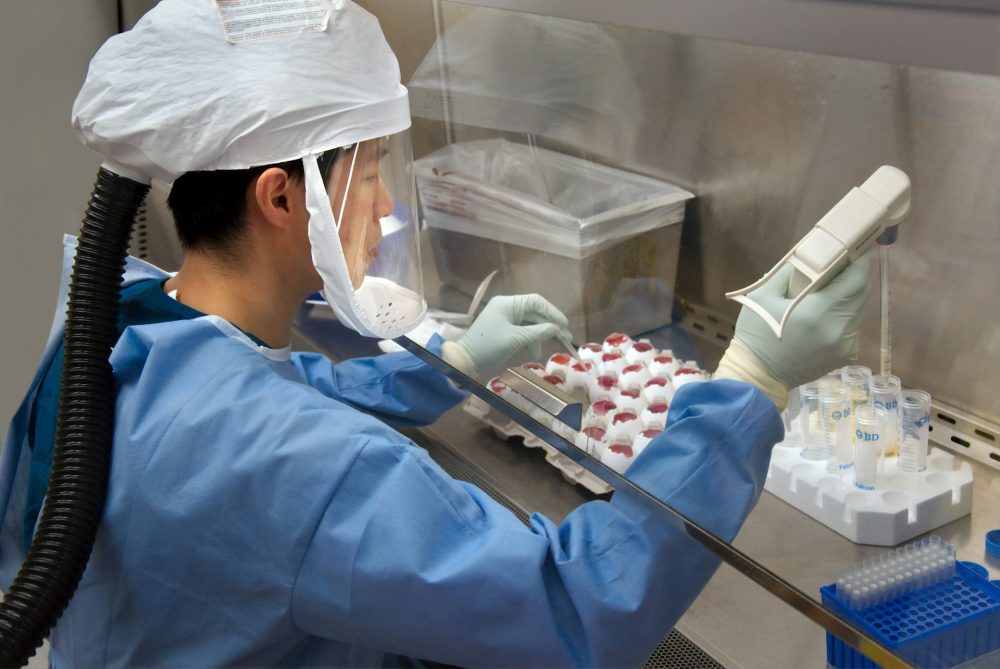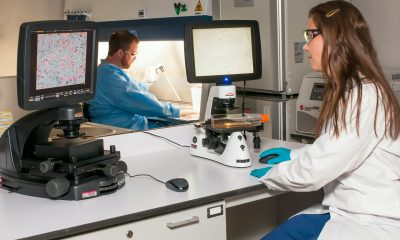Biotech
Global Cancer Research Funding Skewed Toward Wealthy Nations, Study Warns of Urgent Equity Needs
A global analysis reveals declining cancer research funding since 2016, with investments concentrated in wealthy nations. The U.S. contributed 57% of $51.4B, while low-income countries received under 0.1%, despite rising cancer rates. Preclinical research dominated funding, while treatment areas remain underfunded. Authors urge equitable, strategic investment to reduce global disparities and strengthen research capacity.

A new analysis has highlighted a worrying reality in the global fight against cancer: research funding is disproportionately concentrated in a handful of wealthy countries, leaving lower-income nations with minimal investment, even though the incidence of the disease is rising in these regions.
The study, titled “Public and philanthropic research funding, publications, and cancer research networks in the Commonwealth and worldwide between 2016 and 2023: a comparative analysis,” was led by researchers at the University of Southampton and published in The Lancet Oncology .
The research analyzed more than 107,000 research grants awarded globally between 2016 and 2023. The conclusion is clear: there is an “urgent need to review investment priorities” worldwide.
Geographic disparity and overall decline in funding
The study reveals that annual investment in cancer research has declined globally every year since 2016 , with the sole exception of an increase in 2021. This decline is worrying considering the growing burden of cancer , which is responsible for one in five deaths globally.
Furthermore, an analysis of the $51.4 billion in grants awarded during this period shows an extremely unequal distribution. The United States emerged as the largest investor, contributing $29.3 billion, representing 57% of the global total. The Commonwealth as a whole contributed $8.7 billion (17%), with the United Kingdom, Australia, and Canada leading the pack.
However, the most disturbing figure concerns low-income countries, which received a total of $8.4 million, equivalent to less than 0.1% of total funding. This imbalance is particularly serious, as the rate of increase for many types of cancer is higher in these countries, placing unsustainable pressure on their health systems and fostering inequity among patients.
Treatment gaps and lack of strategic vision
In addition to the geographic disparity, the study highlights a lack of balance in the allocation of funds according to the type of research. The vast majority of funding, 76%, was allocated to preclinical research . While this area is crucial for the discovery of new therapies, the study’s authors warn of a lack of funding in areas directly related to patient treatment.
Research into surgical oncology and radiotherapy, two essential pillars of treatment, is particularly underfunded, receiving only 1.7% and 3.1% of total funding, respectively. This lack of investment in treatment modalities limits the capacity of health systems to implement practical and effective solutions on a large scale.
“It’s critical that we understand how and where money is allocated,” said Michael Head, lead author of the study. Inequalities in investment create an imbalance between the progress achieved and the populations that actually benefit from it.
On the other hand, this work also analyzed collaborative networks in cancer research. The results show that grant and publication collaborations between the Commonwealth, the US, and the European Union (EU) are facilitated by links through a core group of Commonwealth countries , such as the United Kingdom, Australia, and Canada. These high-income countries, although centralized in collaborations, have the opportunity to facilitate links with low-income countries and support active cancer research in other parts of the world, the study points out.
Anbang Du, co-author of the study, emphasized that “unless we increase targeted investments and develop local research capacity, inequalities will persist.” Therefore, the study calls on national groups such as the Commonwealth and other international agencies to coordinate efforts, mobilize funding, establish sustained partnerships, and strengthen training and infrastructure in low-income settings.
Review of priorities: the future of the fight against cancer
The study concludes that there is an “urgent need to review research investment priorities, both within the Commonwealth and globally.” The goal is to align funding with the real needs of the population and promote collaborative strategies that develop research skills and infrastructure in low-income countries.
The authors caution that finite resources must be invested wisely to achieve maximum improvements in mortality and alleviate the global burden of cancer. Inequity in funding is not only an economic problem, but also a public health and social justice imperative.
In a context where cancer is becoming an increasingly heavy burden for countries with fewer resources, equitable and strategic investment is the only way to ensure that scientific advances benefit everyone, everywhere.
The University of Southampton research was conducted in collaboration with renowned institutions such as Queen’s University Belfast, Harvard University, Imperial College , and the University of Health and Allied Sciences in Ghana.
__
(Featured image by CDC via Unsplash)
DISCLAIMER: This article was written by a third party contributor and does not reflect the opinion of Born2Invest, its management, staff or its associates. Please review our disclaimer for more information.
This article may include forward-looking statements. These forward-looking statements generally are identified by the words “believe,” “project,” “estimate,” “become,” “plan,” “will,” and similar expressions. These forward-looking statements involve known and unknown risks as well as uncertainties, including those discussed in the following cautionary statements and elsewhere in this article and on this site. Although the Company may believe that its expectations are based on reasonable assumptions, the actual results that the Company may achieve may differ materially from any forward-looking statements, which reflect the opinions of the management of the Company only as of the date hereof. Additionally, please make sure to read these important disclosures.
First published in GACETA MEDICA. A third-party contributor translated and adapted the article from the original. In case of discrepancy, the original will prevail.
Although we made reasonable efforts to provide accurate translations, some parts may be incorrect. Born2Invest assumes no responsibility for errors, omissions or ambiguities in the translations provided on this website. Any person or entity relying on translated content does so at their own risk. Born2Invest is not responsible for losses caused by such reliance on the accuracy or reliability of translated information. If you wish to report an error or inaccuracy in the translation, we encourage you to contact us.

-

 Crypto2 weeks ago
Crypto2 weeks agoBitcoin Steady Near $68K as ETF Outflows and Institutional Moves Shape Crypto Markets
-

 Crypto2 days ago
Crypto2 days agoMiddle East Tensions Shake Crypto as Bitcoin and Ethereum Slip
-

 Business1 week ago
Business1 week agoDow Jones Stalls Near Record Highs as Inflation-Fueled Rally Awaits Next Move
-

 Fintech6 days ago
Fintech6 days agoFirst Regulated Blockchain Stock Trade Launches in the United States





















